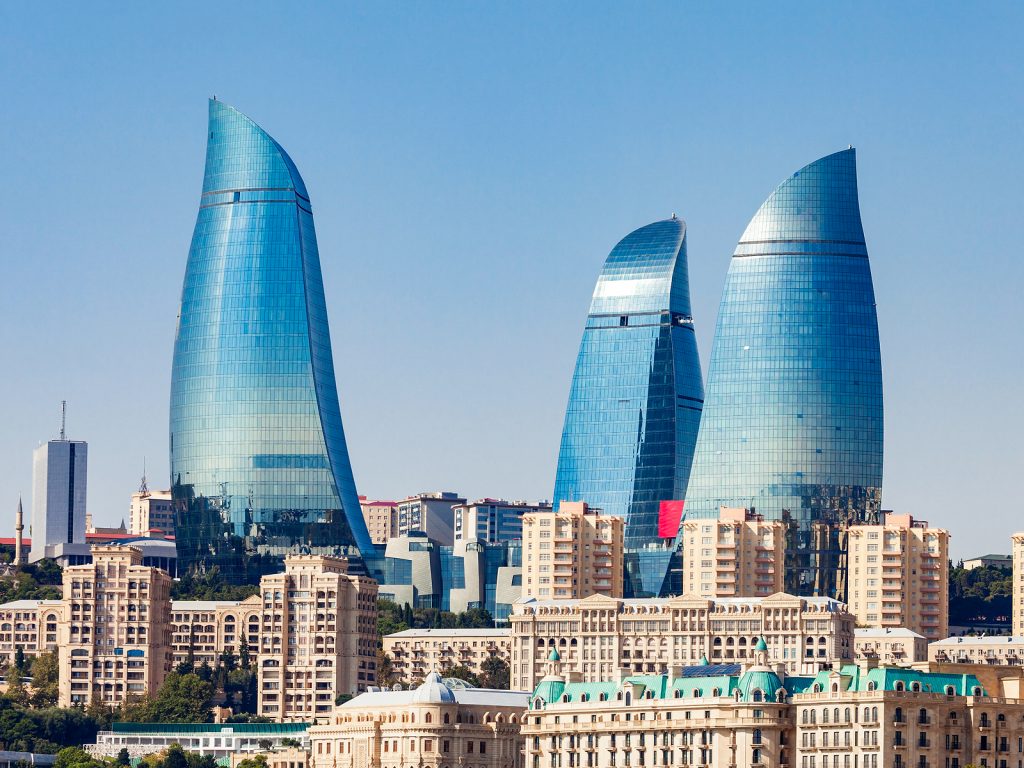Made in emerging Europe: Salv, record FDI in Estonia, Azeri fintech

Emerging Europe’s tech and innovation scene is booming: new money and new ideas are hitting the market all the time. To keep you updated with the latest investments, innovations, events and accelerators, every week Emerging Europe gives you an overview of the region’s technology, investment and start-up news.
Tallinn-based AML tool Salv adds four million euros to the seed round
Estonian regtech startup Salv last week closed a €4 million seed round expansion to further develop its modular technology and support geographic expansion into new territories, notably Poland.
Salv’s new funding was led by ffVC, with Giesecke+Devrient Ventures and several existing investors also participating. This latest seeding will allow Salv to continue improving its anti-money laundering (AML) capabilities for financial services, such as automatically identifying and prioritizing suspicious activity and processing massive amounts of data in real-time.
Financial crime, especially fraud, has seen a significant increase in recent years due to the explosive growth of the fintech industry. Financial institutions often operate in silos and attempt to solve the problem independently, leading to a shortened timeline for fraud recovery. Salv aims to fight financial crime with its collaboration platform, Salv Bridge.
“The digitization of the financial industry has resulted in an avalanche of financial crime, and the numbers are only expected to grow,” explains Salv’s CEO and co-founder Taavi Tamkivi.
“Our collaboration platform for fighting crime, Salv Bridge, has proven to be effective against money laundering, sanctions and fraud. The funds allow us to add additional functionality to our modular AML toolset and expand into new markets, helping more companies improve their crime-fighting measures and thereby protect their end customers.”
Estonian FDI at all-time high

In other news from Estonia this week, it was revealed that foreign direct investment (FDI) in the country reached a record high in 2022. More than €350 million was brought in by Invest Estonia, the Estonian investment agency.
“The war started by Russia shook the world economy, but Estonia has managed to exploit its strengths,” says Estonian Minister of Entrepreneurship and Information Technology Kristjan Järvan.
“They include an educated workforce capable of creating high added value, a simple and transparent tax system and flexibility both in the regulatory environment and in testing new technology. If we are the best in the world at these three things, we don’t have to convince foreign investors for too long.”
The largest investment was by earth metal producer Silmet, which announced the construction of a magnet factory and research and development center in the city of Narva. Canadian Neo Performance Materials (NPM), the owner of Silmet, is set to invest 81.25 million euros, and Estonia will add 18.75 million euros through the Just Transition Fund.
“In the first half of the year, we had to explain a lot to maintain investor confidence in Estonia,” says Joonas Vänto, head of Invest Estonia.
“The second half of the year was again more commercially active, and a number of important investment agreements for Estonia were confirmed. All in all, interest in investing in Estonia remains high.”
Supporting fintech development in Azerbaijan

To support Azerbaijan in leveraging fintech to provide efficient financial services, the International Finance Corporation (IFC) and the Azerbaijan Fintech Association last week signed a memorandum of understanding to work on strengthening the framework for Azerbaijani fintech companies and help them scale up and offer cost-effective, fast and quality services in the country.
According to the memorandum, IFC’s Embedded Finance and Digital Financial Services Project will conduct webinars to train and build the capacity of fintech companies in line with international best practices.
One of IFC’s main priorities is to help bring the unbanked into the formal financial system and ensure that people have access to financial services. In this context, technological innovation is an effective way to improve access to financial services, while promoting financial inclusion in developing countries.
“Fintech innovations reduce physical barriers to financial services. Initiatives to bring financial services where people live and work enable greater financial inclusion, especially in remote areas where visiting a bank branch may require additional time and resources. Given the country’s growth trajectory, our partnership with IFC aims to help fintech companies thrive, and contribute to the financial sector’s resilience in Azerbaijan, said Ruslan Talibov, chairman of the Azerbaijan Fintech Association.
“Fintech, a disruptive technology, provides stronger financial inclusion, the potential for accelerated growth and shared prosperity across developing countries. We hope that our partnership with the Azerbaijan Fintech Association will help fintech companies in the country modernize the way financial services are delivered, and support responsible and innovative solutions to reach unserved and underserved populations, adds Rana Karadsheh, IFC’s Regional Director for Europe.
Unlike many news and information platforms, Emerging Europe is free to read, and always will be. There is no paywall here. We are independent, not affiliated with or representing any political party or business organisation. We want the very best for emerging Europe, nothing more and nothing less. Your support will help us continue to spread the word about this wonderful region.
You can contribute here. Thank you.

























